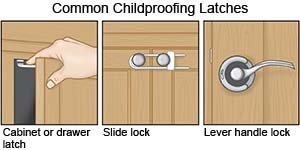Accidental Ingestion of Medicine in Children
Medically reviewed by Drugs.com. Last updated on Aug 4, 2025.
What do I need to know about accidental ingestion (swallowing) of medicine?
Accidental ingestion of medicine can be life-threatening and must be treated immediately.
What increases my child's risk for accidental ingestion of medicine?
- Your child is 5 years or younger.
- Your child or someone in your home is taking prescription or over-the-counter (OTC) medicine.
- Your child has access to medicines stored in your home.
- Your child is given the wrong medicine.
- Your child is given the wrong dose of medicine.
What should I do if I think my child has ingested too much medicine or the wrong medicine?
This includes prescription and over-the-counter medicines. Call the Poison Control Center immediately . The telephone number is 1-800-222-1222 . Keep this number by every telephone in your home and on your mobile phone.
How can I help prevent accidental ingestion of medicine?
- Safely store all medicines. Keep medicines out of sight and reach from your child. Store medicines in higher locations or in childproofed cabinets or drawers.

- Keep all medicines in the original packaging. Do not put medicines in containers that are not labeled or in plastic bags. Medicine packaging usually has child-safety features to keep your child from getting into the container.
- Measure liquid medicine correctly. Use a tool specially made to measure liquid medicine. Examples are oral syringes and marked dosing spoons or cups. These tools can be found at a drugstore. Do not use a kitchen teaspoon or tablespoon. These are not accurate, so your child may get the wrong dose of medicine.
- Talk to your child's healthcare provider or a pharmacist before you give your child medicine. The provider or pharmacist can give you instructions on how to safely give your child medicine.
- Properly dispose of medicines you no longer use. Follow instructions from a healthcare provider or pharmacist on how to safely dispose of medicines. This will help limit the amount of medicines in your home.
Call your local emergency number (911 in the US) if:
- Your child is not conscious, has trouble breathing, or is not breathing.
- Your child has a seizure.
When should I seek immediate care?
- Your child has vision changes or is hallucinating.
- Your child is confused, agitated, or irritable.
- Your child has an irregular heartbeat.
- Your child faints or feels dizzy or weak.
- Your child has a rash or hives. Your child's face may look red or darker than usual.
When should I call my child's doctor?
- Your child develops any new signs or symptoms.
- Your child has nausea or is vomiting.
- Your child swallowed an amount of medicine that may be harmful but does not have any signs or symptoms.
- You have questions or concerns about your child's condition or care.
Care Agreement
You have the right to help plan your child's care. Learn about your child's health condition and how it may be treated. Discuss treatment options with your child's healthcare providers to decide what care you want for your child. The above information is an educational aid only. It is not intended as medical advice for individual conditions or treatments. Talk to your doctor, nurse or pharmacist before following any medical regimen to see if it is safe and effective for you.© Copyright Merative 2025 Information is for End User's use only and may not be sold, redistributed or otherwise used for commercial purposes.
Further information
Always consult your healthcare provider to ensure the information displayed on this page applies to your personal circumstances.
